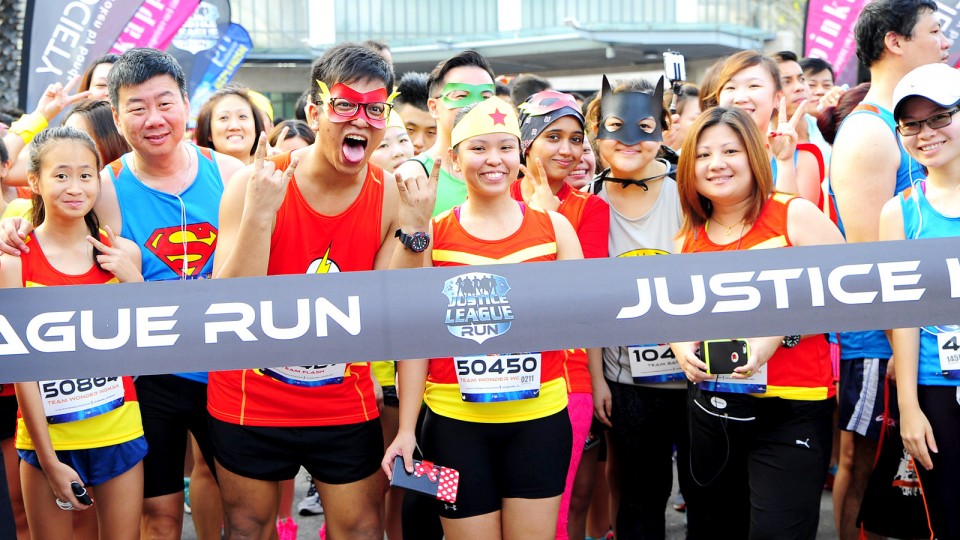Singapore takes its marathons, runs, ultras and endurance races seriously. How else could we have become an international force of nature when it comes to hosting events and sending our best athletes out to compete on the world stage?
But maybe we need to lighten up a bit. After all, life is serious enough these days—which is exactly why we’re proposing more fun runs! Even Singapore’s President and Prime Minister might agree! Okay… Maybe not. After all, government officials have more to worry about than banana relays!
To convince you of the need for more run runs that prioritise both athleticism and a good time, we offer this two-part series written to show you why there should be more fun runs, and in part two, we propose suggestions for themes that make perfect sense for the Singapore market.
But before those suggestions come your way, a short history lesson about the advent of fun runs—and why they have become so popular.
The Genesis of The Fun Run
Author Roger Robinson took us back to around 1970 when race organisers in major cities around the world were beginning to stage marathons based loosely on track and field events modelled after Olympic track and field meets.
The idea became popular with people who were not just competitive but eager to make running more than just a favourite pastime. Quickly, local marathons—sponsored and not—began to appear on community sports calendars, sports organisation programmes and at recreational venues.
In many cases, the only reason for staging these races was to bring together community members in the spirit of healthy competition. Some of these events were open; others closed.
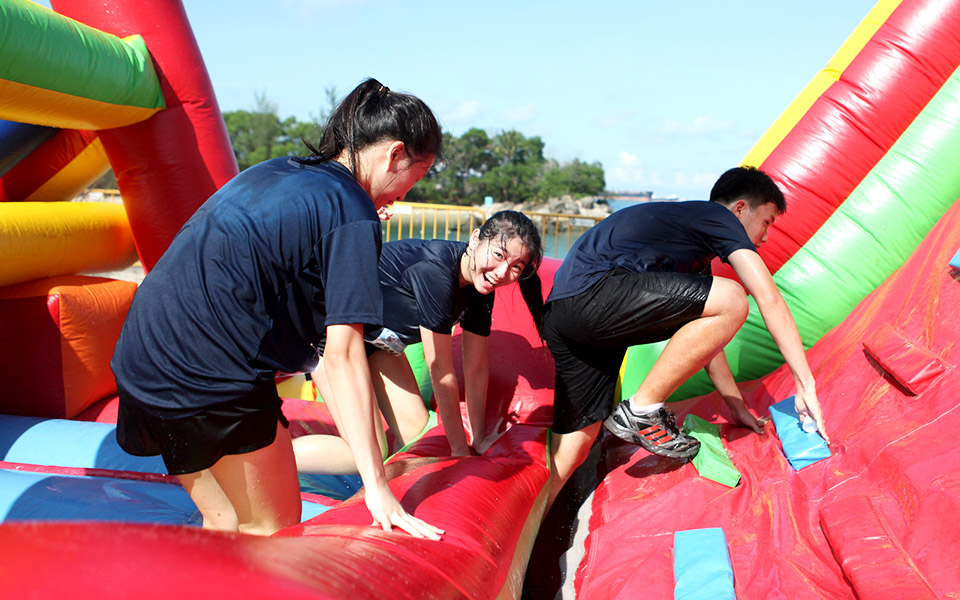
Overseas, New Zealand set about establishing the second biggest race on earth in Auckland in 1972. Guest what? This event was promoted as the Bays Fun Run, so if anyone asks you where the name originated, you can point to this race as the likely suspect!
Two Running Worlds Separate
As time passed, bureaucracy began to creep into the sport of track and field. Federations, committees, sub-committees, rules, regulations and events grew more and more restrictive as career runners became more immersed in the competitive nature of racing and, in some cases, collecting prize money and/or medals.
Lengthy protocols, practices and restrictions now associated with competitive runs had their roots here and frankly, there was nothing fun about these events, each of which attracted the best of the best across the globe.
Nationalism ran high. Investments were made in training and a commercial market, associated with the burgeoning marathon industry, emerged—so what ever happened to fun runs?
Fun Run Founders Emerge
By the last quarter of the 20th century, staid championship events had become the domain of the skilled amateur and professionals seeking careers in the sport. Within this environment sprung up a breed of “non-judgmental” road races that injected new and unique elements that included elements of fun, gimmicks and offbeat themes not seen in conventional running events.
The chasm between serious and fun runs grew deep and wide, but promoters saw fun runs as great ways to raise funds for charities, bring communities together and eliminate many of the formal aspects of the high-profile marathon.
Leading the movement to craft unconventional racing events were a small group of runners who saw the benefits of this race niche, which is how Jack and Cheryl Taunton, Doug Clement, Nina Kuscsik, Fred Lebow, Kathrine Switzer and Don Kardong helped jump-start what has become a billion-dollar industry for organisers eager to make money, involve the community and create a style of run filled with personality.
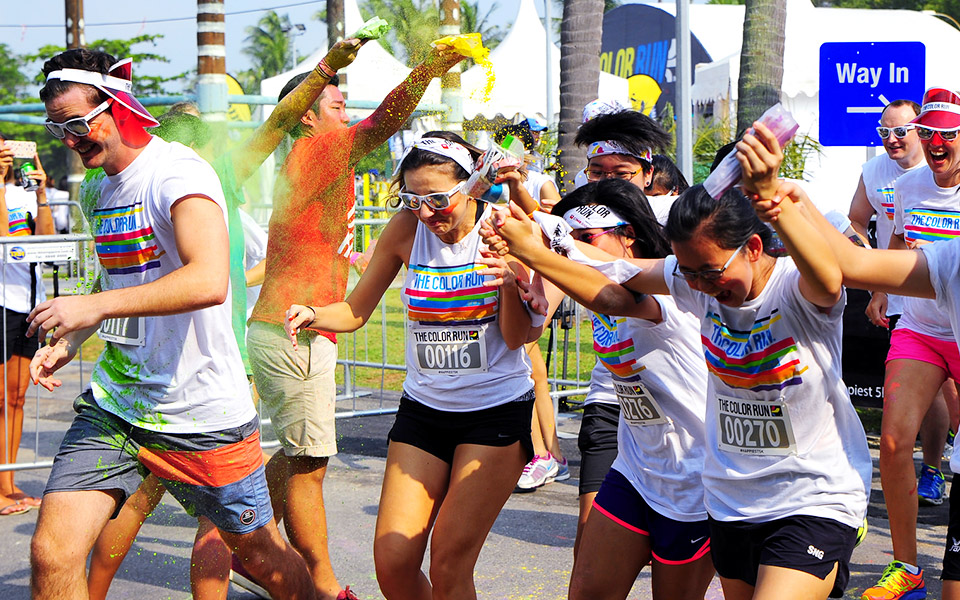
Today’s Fun Run
Nearly 50 years separates the cohesion of the fun run movement with today’s offbeat, sometimes-strange, silly, quirky and charity-driven versions, but what remains when superfluous and unique details are culled, is a separate class of run that’s been welcomed around the world.
Fun runs may or may not be taken seriously—as in, may or may not award prizes—and they may or may not bear resemblances to high-profile marathons making international headlines.
Enjoyment surpasses prowess. Light-heartedness bests personal bests. Even when there’s an element of competition, entrants don’t always have the desire to beat out fellow competitors when they can meet up for celebratory drinks afterward instead. If you’ve participated in a fun run, you know they live up to the name!
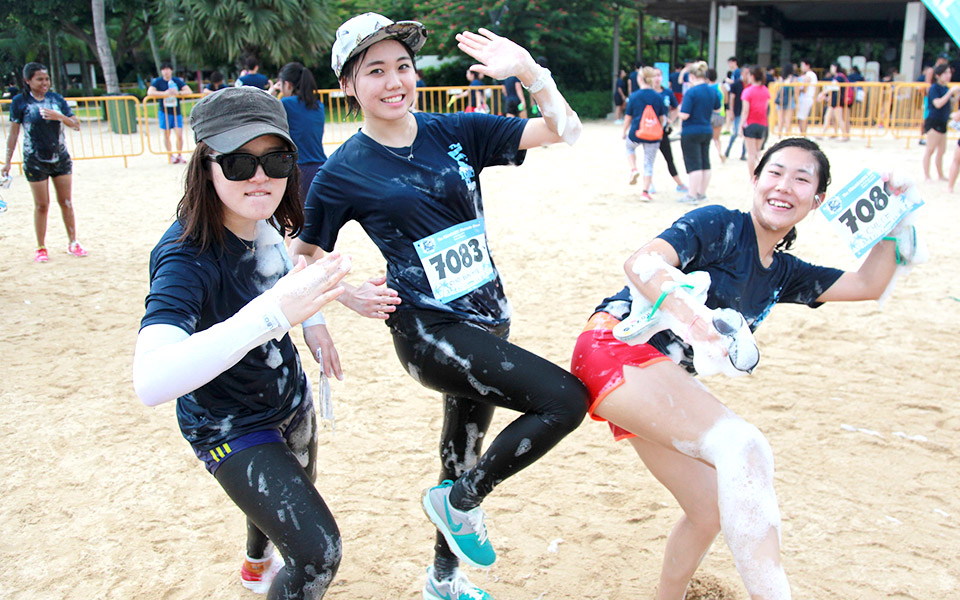
Singapore Fun Runs
Do you need a good pair of running shoes to participate in a fun run?
Of course. But you may also need a Superhero costume, the desire to raise funds for animals, or the urge to pay tribute to My Little Pony or Snoopy. These lighthearted characters are already represented at events on the 2016 Singapore running calendar, and they’re just a taste.
What’s great about Singapore fun runs? Participants don’t have to spend big bucks to buy equipment or gear, so fun runs are a budgeter’s dream because there’s no massive outlay of money often required to train for and undertake large competitive runs.
Sure, you’ll pay a registration fee—but fun run entry fees tend to be affordable when compared to those charged at high profile racing events in Singapore and elsewhere in the region.
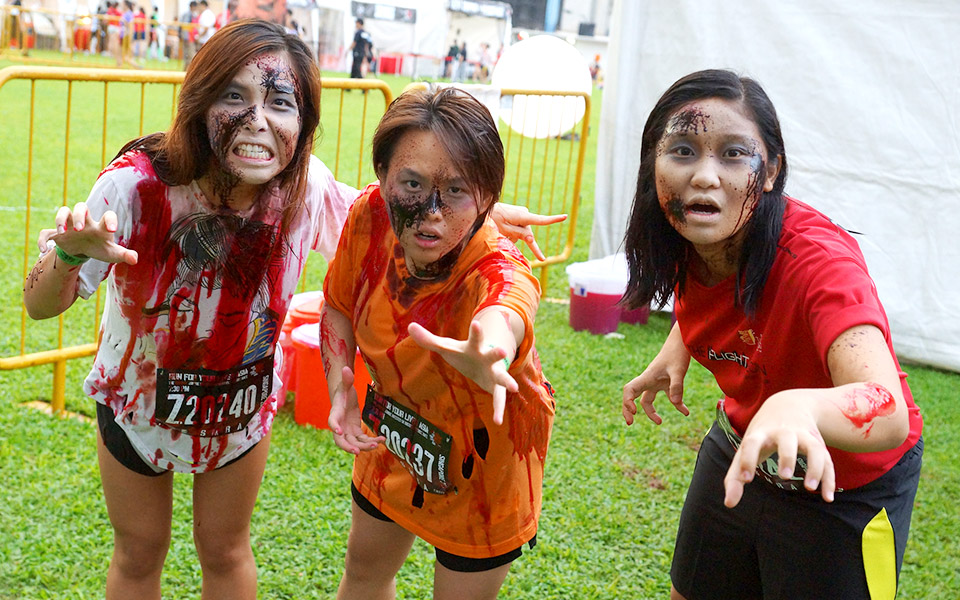
Reasons To Participate In Fun Runs
Start with joy! It’s hard not to giggle when you’re using a banana as a baton at a fun relay race and the joy expressed on the faces of competitors at lighthearted events is palpable.
Participants get out, meet new people, chat up friends, introduce children to the sport in a laid-back environment, and we dare you to say that your stress isn’t diminished after a fun run!
It’s not unusual for Singaporeans to be indoctrinated into the world of running as a direct result of participating in fun runs, and if you’re the charitable sort, it feels good to raise funds for causes, charities and movements that often sponsor such events.
In fact, if you can think of a single downside to fun runs, we urge you to share it. From our perspective, there are none!
What are the reasons that compel you to join a themed fun run either in Singapore or overseas? Or do you simply join because your kids or partner forced you too?
Stay tuned for part two of the article as we continue to investigate some of the themed fun runs that should arrive on our island.


